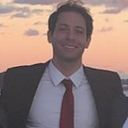How Will You Measure Your Life?
This article is a part of my Best Reads of the Month section on my website www.mikegorlon.com. Each month I pick one or two articles or blog posts that I find on the internet which I thought were really insightful, interesting or moving. Then I share them with you. You can view the previous month’s articles by going to: https://www.mikegorlon.com/best-reads-of-the-month
February 2020: How Will You Measure Your Life
Clayton Christensen was a consultant and a professor at Harvard Business School. He is the author of many books including The Innovator’s Dilemma, The Innovator’s Solution, Competing Against Luck, and others including How Will You Measure Your Life which is related to what this month’s Best Read of the Month is based on.
Clayton gave a speech about personal life to Harvard students of the graduating class of 2010 at their request. The students were worried because when they entered Harvard in 2006 the economy was doing very well but just as they were graduating and getting ready to enter the job market, a lot changed.
The economy in 2010 was starting to just pull out of the worst economic period since the Great Depression and although it was starting to recover, it wasn’t obvious at the time. So in order to help those students navigate that tough time they looked to Clayton for guidance and he didn’t disappoint.
Clayton gives a lot of practical advice that can be learned from their business studies but applied to their personal lives. He talks about culture, work, marriage, children, faith, work and more.
Here are some quotes I enjoyed reading:
“On the last day of class, I ask my students to turn those theoretical lenses on themselves, to find cogent answers to three questions: First, how can I be sure that I’ll be happy in my career? Second, how can I be sure that my relationships with my spouse and my family become an enduring source of happiness? Third, how can I be sure I’ll stay out of jail? Though the last question sounds lighthearted, it’s not. Two of the 32 people in my Rhodes scholar class spent time in jail. Jeff Skilling of Enron fame was a classmate of mine at HBS. These were good guys — but something in their lives sent them off in the wrong direction.”
— — — — — -
“Over the years I’ve watched the fates of my HBS classmates from 1979 unfold; I’ve seen more and more of them come to reunions unhappy, divorced, and alienated from their children. I can guarantee you that not a single one of them graduated with the deliberate strategy of getting divorced and raising children who would become estranged from them. And yet a shocking number of them implemented that strategy. The reason? They didn’t keep the purpose of their lives front and center as they decided how to spend their time, talents, and energy.”
— — — — —
“Had I instead spent that hour each day learning the latest techniques for mastering the problems of autocorrelation in regression analysis, I would have badly misspent my life. I apply the tools of econometrics a few times a year, but I apply my knowledge of the purpose of my life every day. It’s the single most useful thing I’ve ever learned. I promise my students that if they take the time to figure out their life purpose, they’ll look back on it as the most important thing they discovered at HBS. If they don’t figure it out, they will just sail off without a rudder and get buffeted in the very rough seas of life. Clarity about their purpose will trump knowledge of activity-based costing, balanced scorecards, core competence, disruptive innovation, the four Ps, and the five forces.”
